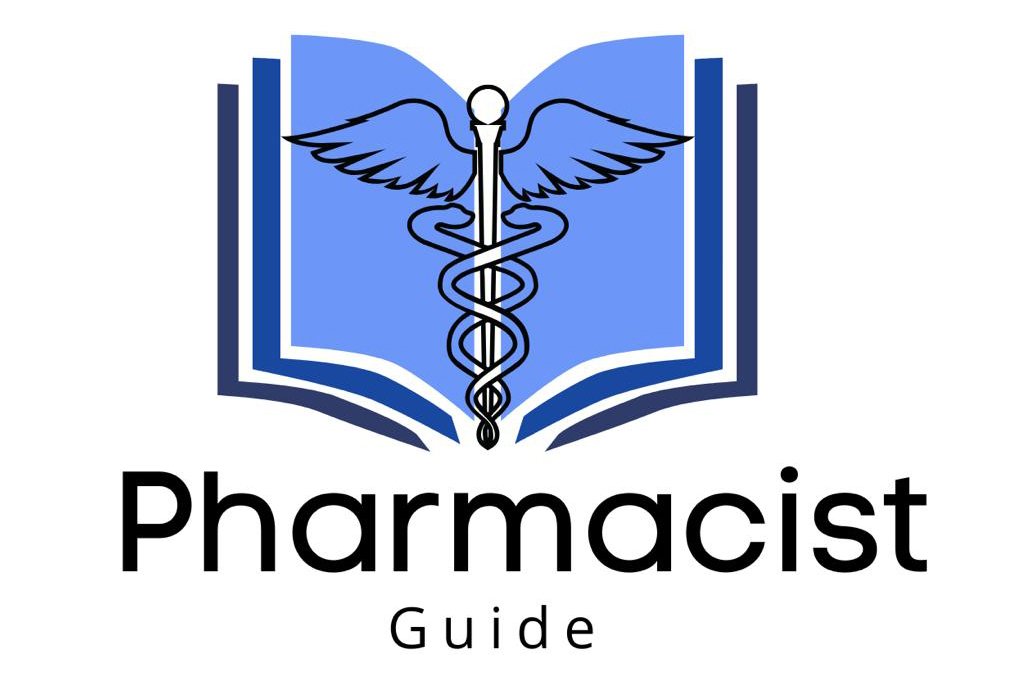Key Points to Remember
- Starting from 2025 the OPRA replaces the KAPS exam.
- The topic of Therapeutics & Patient Care accounts for 45% of the marks.
- Communication, ethics, and law are also included in the context.
- Elite Expertise is always available to you for your instruction, practice exams and personalised mentorship.
The OPRA Pharmacist Exam represents a fresh start in the way that pharmacists in Australia are licensed which is more focused on the understanding and the ability of the applicant to use the knowledge in a clinical context. For international pharmacy graduates seeking Australian registration, the OPRA examination has been introduced to replace the KAPS exam as the mandatory entry assessment.
To succeed confidently, applicants are required to concentrate their efforts on key areas that relate to the Australian Pharmacist Competency Standards. The current guide explains in detail the 10 most significant OPRA exam topics that should be mastered, thus making your preparation for the OPRA exam not only strategic but also effective with time management.
Overview of the OPRA Pharmacist Exam
| Aspect | Details (Based on APC 2025 Guidelines) |
| Exam Name | Overseas Pharmacist Readiness Assessment (OPRA) |
| Format | Single, Computer-Based Test (CBT) |
| Duration | 2.5 hours (150 minutes) |
| Questions | 120 Multiple-Choice Questions (MCQs) |
| Scoring System | Rasch Methodology – scaled competency score |
| Key Focus | 45% Therapeutics & Patient Care |
| Goal | Assess real-world clinical readiness for Australian pharmacy practice |
The Australian Pharmacy Council (APC) designs the OPRA exam, which is a component of the Pharmacy Board of Australia (PBA) licensing process. Its goal is to verify that the qualifications, skills and behaviour of an international pharmacist are at par with the Australian standards before being allowed to practice in the Australian system.
OPRA leads the academic and practical sides of pharmacy through the core areas of therapeutics, clinical reasoning, law, and communication — a pharmacy registration that every candidate needs to be able to manage.
Why Topic-Wise Preparation Is Key to Passing the OPRA Exam
To be successful in OPRA, it is crucial to have a focused, topic-wise preparation strategy. Every subject contributes a certain percentage to the total and understanding this breakdown makes it easier to divide your study time effectively.
| Content Area | Weightage | Cognitive Focus / Skills Tested |
| Therapeutics & Patient Care | 45% | Primarily application-based, problem-solving scenarios |
| Biomedical Sciences | 20% | Foundational understanding, integration of concepts |
| Pharmacology & Toxicology | 15% | Conceptual understanding of drug effects and safety |
| Pharmacokinetics & Pharmacodynamics | 10% | Application of principles to clinical situations |
| Medicinal Chemistry & Biopharmaceutics | 10% | Understanding chemical and biopharmaceutical properties |
- Key Strategy: You should dedicate a major part, roughly 60-70%, of your total Prep Time to mastering Therapeutics and Patient Care since almost half of the test covers practical clinical reasoning.
- Plan Revision Blocks: Use the last month of your studies mainly to going over pharmacology, law and communication-related questions.
- Use Real Australian Resources: The Australian therapeutic guidelines (eTG) and the Australian medicines handbook (AMH) are two essential texts.
Law and Ethics – Master the Regulatory Framework
It is very important to understand the concepts of Law and Ethics in Australia. Such you will come across test questions that assess your ability to correctly interpret and apply the law to actual cases of pharmacy practice.
Focus Areas:
- Scheduling & Dispensing Rules: Be familiar with the S2, S3, S4, S8 medication categories.
- Professional Behaviour: Code of Conduct, Quality Use of Medicines (QUM).
- Ethical Scenarios: Practicing patient confidentiality, informed consent, and professional judgment.
Patient Care – Essential Clinical Knowledge and Practice
The skills with the largest impact (45%) are the evaluation of prescriptions, clinical application, identifying drug-related problems, and being able to give safe and effective care.
What to Master:
- Clinical case evaluation and dose modification
- Handling of adverse drug reactions (ADRs)
- Performing calculations for dosing, dilutions, and compounding
- Special populations: pediatrics, geriatrics, pregnancy, and renal impairment
Pharmacotherapy and Medicines Management
The OPRA can be positively passed when you have a clear understanding of evidence-based therapy as your core focus.
Use clinical guidelines that are specific to Australia like Therapeutic Guidelines (eTG Complete) and Australian Medicines Handbook (AMH) as your main reference.
High-Yield Topics:
- Chronic diseases: Diabetes, Asthma, Hypertension, COPD.
- Infectious diseases: Mechanism of resistance, antimicrobial duration.
- Principles of polypharmacy and medication review.
Communication Skills and Counselling Techniques
Just by taking multiple-choice questions based on different situations, the OPRA exam assesses your communication skills in a pharmacy environment.
Focus On:
- Clearly explaining medication usage and side effects.
- Evaluating health literacy.
- Interprofessional communication – working with doctors and nurses.
Clinical Decision-Making and Critical Thinking
The examination allocates approximately 15% of its questions to assessing the candidate’s capability to critically analyze, rank in order of importance, and find the solutions to clinical problems.
Key Practice Areas:
- Case-based reasoning
- Prioritising drug interactions or ADRs
- Managing complex patients with multiple comorbidities
Professional Conduct and Responsibilities
Across the whole exam, this section evaluates your professional conduct and responsibility.
- Keep the information about the patient confidential.
- Follow the requirements for documentation and quality assurance.
- Encourage the use of safe methods and the minimum of harm in the drug dispensing practices.
Evidence-Based Practice and Research Fundamentals
Pharmacists are required to properly clinical evidence effectively.
Key Concepts:
- Evaluating medical literature and judging the trustworthiness of research.
- Learning statistics such as p-values, NNT and relative risk.
- Using the result of the study to an individual patient case.
Final Preparation Tips to Cover All OPRA Pharmacist Exam Topics
- Tackle Therapeutics and Patient Care (45%) questions first as this section forms the major part of the exam.
- Follow references such as AMH and eTG Complete which are the real and reliable drug resources in Australia.
- Practice with a timer – try to complete each question in 75 seconds.
- Do mock tests and clinical scenarios to feel exam pressure.
- In the last week, review the legal and ethical frameworks.
Elite Expertise: Australia’s Premier OPRA Exam Coaching Provider
Elite Expertise is on a different level when we talk about a well-organized preparation for the OPRA exam. The program, which is created and facilitated by Australian pharmacists who are currently practising, not only guides but also equips the pharmacists from international pharmacists achieve first-attempt success with confidence.
What Sets Elite Expertise Apart:
- Australian-Based Faculty: Led by Australian-based Consultant Clinical Pharmacists Arief Mohammad and Harika Bheemavarapu, the faculty combines deep subject matter expertise with proven experience in APC examination coaching.
- 24/7 Admin and Academic Support: Support through the whole process starting from enrollment until achieving success in the exam.
- Comprehensive Study Materials: Receive full access to recorded classes, the latest study notes, and case banks, maintained until you achieve a pass result.
- Mock Assessments: Realistic APC-style exams accompanied by tailored performance feedback.
- Focused on Clinical Thinking: A workout for the brain that focuses on the development of analytical and decision-making skills.
- Interactive Classes: Role-plays, live Q&A and pharmacy simulations for real-world readiness.
Their 95%+ pass rate is a strong indication of how well their method works integrating Australian standards, actual pharmacy cases and mentorship to give you the skills and confidence needed to pass OPRA.
Find out more about the OPRA Preparation Course → Elite Expertise OPRA Exam Preparation Course.
Final Words
Overcoming the OPRA Pharmacist Exam is not just a step along the way it’s what opens the door to a career in pharmacy that is satisfying, respected, and recognized worldwide in Australia. It is often a tough road from the ground of theory to that of real-world practice but if you have the right getting ready strategy, targeted topic-wise study and the involvement of the expert you can turn this journey smooth and successful.
Train wisely, keep to the same routine, and meet the test with confidence that comes from proper preparation. What lies ahead of you for your registration as a pharmacist in Australia is learning these 10 general OPRA exam topics by heart and to make your journey as smooth as possible at Elite Expertise.
Frequently Asked Questions (FAQs) About the OPRA Exam
Only internationally trained registered pharmacists are eligible to take the OPRA exam.
The OPRA exam consists of a single paper containing 120 multiple-choice questions (MCQs).
The duration of the OPRA exam is two and a half hours in total.
No, there is no negative marking in the OPRA exam.
The OPRA exam primarily focuses on therapeutics and patient care topics.
The OPRA Pharmacist Exam has replaced the previous KAPS exam conducted by the APC.
The OPRA exam is conducted by the Australian Pharmacy Council (APC).
The OPRA exam is scored using a Rasch-based scaled scoring system to ensure fairness and consistency.
Yes, you can prepare for the OPRA exam online through structured coaching programs and virtual mock tests.
Regular mock tests, clinical reasoning practice, and focused revision significantly improve first-attempt success rates.

